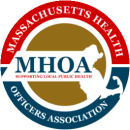Essential Measures:
A Local Public Health Toolkit for Addressing the Opioid Epidemic
Essential Measures:
A Local Public Health Toolkit for Addressing the Opioid Epidemic
Developed by the Massachusetts Health Officers Association and Education Development Center with support from the Local Public Health Institute of Massachusetts
This Opioid Toolkit is funded by a State Opioid Response grant from the Substance Abuse and Mental Health Services Administration (SAMHSA) to the Massachusetts Department of Public Health, Bureau of Substance Addiction Services.
Introduction
The role of local governmental health departments in Massachusetts is to promote health and equity, combat disease, increase longevity, and improve the quality of life for all residents of the Commonwealth. Over the past decade, recognition of substance misuse as a chronic and widespread health issue has grown, and health department staff have taken the lead in addressing the needs of people with substance use disorders, including those addicted to opioids. Opioid addiction and opioid-related deaths remain a critical public health problem in the Commonwealth, with total deaths in 2020 reaching a record high, and Black and Latinx opioid death rates now higher than for any other racial group.
This toolkit will prepare local health department staff to respond to the opioid epidemic. We know that prevention interventions are most successful when they are well-matched to the needs and conditions of the community. This one-stop reference guide contains the information local health departments need to create and implement prevention approaches that make a difference.
Introduction
Includes an overview of the toolkit and a short glossary. However, most terminology will be defined along the way.
Evidence-Based Opioid Prevention Interventions
Includes an introduction to evidence-based opioid prevention intervention, organized by four categories: public messaging campaigns, prescriber education, harm reduction, and other strategies.
10 Essential Public Health Services
Includes steps local boards of health can take to address opioid misuse, organized around the 10 Essential Public Health Services for Public Health Services.
Putting It All Together
Includes a more in-depth case example showcasing how the Northampton Board of Health is integrating opioid prevention into its work.
Resources
Includes an annotated list of resources where readers can learn more about the prevention strategies included in this toolkit.
Acknowledgements
This toolkit has benefited from the collective expertise and ideas of many individuals. In particular, the Massachusetts Health Officers Association would like to thank the following individuals for their thoughtful contributions:
- Melanie Adler, Senior Project Director, Education Development Center
- Aubrey Ciol, Program Director, Drug-Free Communities, Norwood, MA
- Michele Farry, Regional Coordinator, Drug Addiction and Recovery Team, Northampton, MA
- Derek Fullerton, Director of Public Health, Chief Health Strategist, Middleton, MA
- Jessica Goldberg, Project Director Education Development Center
- Stephanie Patton, Prevention Coordinator, Stoughton, MA
- Erica Piedade, Director of Local Public Health Initiatives, Massachusetts Department of Public Health
- Gisela Rots, Director, Project Director/Education Development Center, Center for Strategic Prevention Support
- Ben Spooner, Associate Project Director, Education Development Center, Center for Strategic Prevention Support
- Paul Williams, Former Substance Abuse Prevention Coordinator, Weymouth, MA
